|
Welcome Laken! Thanks for taking some time to chat about writing. First, a few quick-fire questions: Coniferous or Deciduous? Spring or Fall? And if you could spend a weekend away in any forest in the world, which one would it be? I love this question. I do appreciate the beauty of the changing colors with deciduous trees; there is something magical and natural in the way these trees mark the passage of time for us humans. However, I prefer the presence of coniferous trees. I like the way they smell. I prefer cold weather climates. I’m fortunate in that the forests here in New Hampshire tend to have both. But if I had to choose one, I would prefer to live in a colder climate in the presence of coniferous trees. "I do appreciate the beauty of the changing colors with deciduous trees; I love the changing seasons. Winter is my favorite. Summer, my least favorite. So difficult to pick between Spring and Fall… If I had to, I would say Fall. There is something peaceful, quiet, and magical about Fall. Perhaps it's the presence of Samhain or a time when the veils grow thin, but I’m definitely cognizant of that shift during this time of year. I feel a strong call to the boreal forest which is spread across parts of Canada and the arctic circle. Back when the continents were connected, this was all one forest, but it is spread across multiple continents now. Traces of boreal biome can be found in New Hampshire, but really need to be a little further north to experience it. I’m always keen to talk about the reality of a writer's life as many people imagine us sitting up in some ivory tower drinking tea while songbirds flit around us. That is certainly not my experience! What is your writing life actually like? Where do you write? How long are your writing sessions typically? Is it really structured or flexible to fit around other commitments? Do you set goals or do you progress as ideas come naturally? Yes, it’s so easy to idealize writing. My “writing life” is often divided between actually writing/editing a WIP and also reading other writer’s work, marketing/promoting my current novel, learning my craft, and keeping up with social media writer friends. That last one is important. People shun it or say it's extraneous, but it’s not. Having friends to share the writing journey with is priceless. So the time I spend just writing during a day is maybe one to three hours. I write at the same time each night, 10:00pm after my son is asleep and I’ve set him up for school the next day, the laundry’s folded, all that home stuff is done. Then I sit down to write uninterrupted. I put my phone on silent and just write for at least an hour. Sometimes it’s two or even three hours. It’s amazing how much I can get done in that uninterrupted time. "Having friends to share the writing journey with is priceless." Sometimes I have time to write during the day, but if I do it’s usually only for an hour or so. I often take notes during the day as pieces of the story come to me, but I don’t have the ability to sit down and just write. I wrote the ending of my current WIP at a traffic light the other day. I saw it in my mind, like a film playing out. So I jotted it down at the next light and then put it in my manuscript later that night. In terms of goals, I’d love to get to a point where my writing is sustainable. I don’t need to be the next big name in fantasy, but if my books are making enough money that I can afford to just focus on writing them, that is what I am working towards. A big congratulations to you on the publication of The Chrysillium Tree! As of September 2021, readers can find their copy online and get lost in this adventure rife with ancient lore, sacred trees, and found family. I know that the ‘post-book’ blues can be a thing and many debut authors are unprepared for it. For authors with upcoming debuts, what strategies or practices helped you to manage the many ups and downs of your debut book launch? Thank you so much! I was really fortunate to have many published writer friends from Twitter before I published my first novel. I learned from them. So I went into this knowing not to have bloated expectations. I think it’s the expectations that get us. I try to keep a practical, realistic viewpoint around sales. I kept my expectations low. Not because I don’t believe in my book. But because I’m realistic about my situation. I chose to be a self-published author. I didn’t even bother to query. I have good reasons for this decision - maybe a conversation for another time - but I knew that with this decision would be the problem of reach. I could have the best novel of all time, but if I’m not getting it into the right hands, who would ever know? I know this is my greatest challenge. Honestly, it would still be a challenge if I traditionally published. It is the challenge of all debut authors. How to get my unknown name and my book out there? How to find my readers? I look at it like that. I am still finding those people. It’s a process. It’s going to take time and probably more than one book. "I was really fortunate to have many published writer friends from Twitter before I published my first novel. I learned from them. So I went into this knowing not to have bloated expectations. Having said that, I was very surprised with how well The Chrysillium Tree is doing. The numbers far exceeded what I had thought possible. In this first month, it has reached a number 400 ranking three times in the top fantasy reads section on Amazon which is a massive genre. And the sales numbers have reflected this. I seem to have established a base of readers who are genuinely interested in my novel and the sequel I am currently writing. I am so grateful for this! This is an accomplishment. This is the beginning. Am I rolling in money? Of course not! I’m not even near enough money made to cover the cost of publishing the second novel. I have my worries. I have my concerns that I won’t make enough money selling my book to cover the costs of creating a new one, but I don’t dwell in that place. There are people out there who love this story. It touched them. They care about what happens next. This is what matters. The Chrysillium Tree has been praised for its incredibly in depth world and its mesmerizing imagery. What inspired this world and what was your process in building it? Did you spend a lot of time building before you began writing or did it come into focus as you wrote the narrative? What tips do you have for writers who are just at the beginning of building their fantasy worlds? That’s a difficult question. I’m not sure if it’s something that can be easily explained or learned. I’m an imaginative person. I have multiple worlds living in me and when I go there, I’m fully there. I can see, smell, taste, feel, all of it. To write immersively, I think a writer needs to immerse themselves and when writing fantasy that has to be through imagination. I think many world-building techniques can actually be a hindrance to this idea. Because they are so concrete they pull a writer out of the important part - the imagining. When I’m imagining, I can feel. That’s not to say the more concrete world-building techniques aren’t important. They are! Travel maps, histories, character arcs, world design, etc. and all the research that goes into these elements is very important. But if that’s all a writer is doing, it’s going to be flat. To me, imagining is most important. I’m enthralled by Idris and Eod. I’m struck by their beauty and I care for their vulnerability. I’m repulsed by the sterility of the Palace of Light and the blind ambition of the Azantium kingdom. I have feelings for these settings. I care for them in one way or another. "Travel maps, histories, character arcs, world design, etc. and all the research that goes into these elements is very important. But if that’s all a writer is doing, it’s going to be flat." So my rough draft is probably like 90 percent imagining. I might get stuck on a detail I need to look into, but I try not to get stuck there in the first draft. Then in the second draft I first go in and clean up, add in those other more concrete details. How long it takes to travel from point a to point b. What is the history behind Queen Druscilla’s hatred of the Lumani… surely it goes beyond just ignorance and bigotry. What else is there? Once that is complete, I return to the second draft and imagine again. What does this scene look like, feel like, taste like, smell like… and weave some more of that in there. So my advice is, please do not get tied up in the concrete details. This is a pit that can suck the life out of your work. I know people who this has happened to. Feel your story. Immerse yourself in your own story. This has been the greatest help to me in my writing. And then weave in the more concrete elements as you need to. When it’s time. Your protagonist Mæve Faolái is being held captive in the Palace of Light by the Crown Prince when she learns of how the Lumani’s sacred Chrysillium Trees are being woefully exploited. In the shadows around this perilous court, a rebellion is brewing with the aim of setting the world right again. There seems to be an interesting contrast here with the traditional reference to light as primarily ‘good’, with darkness representing evil; here it is flipped around. What inspired you to spin this trope on its head and how do you use that throughout the story in terms of imagery? I do not appreciate the idea that light is good, dark is evil. In other cultures, white is the color of death because it is the absence of color. Whereas black is life or all colors. As a privileged American white woman, I see how our narrative is spun in light to hide very terrible things. Genocide, slavery, exploitation, rape - what is this other than light behaving as evil? It’s dishonest. It’s meant to trick so that violence can continue. Like a white bone demon. And if people don’t have a mind to discern what they are being told, then the trick goes on and so does the violence. This is not just American history, it's European history too, it’s modern history. This is the Azantium kingdom. "I do not appreciate the idea that light is good, dark is evil. I am currently working on the final edits for the third book in my trilogy titled The Elder Trees, so I am really deep in a headspace of thinking about the lore of trees. Which mythology or cultural narratives inspired your world-building around the Chrysillium Trees and what draws you to write about these incredible wonders of our natural world? I love the title of your book! I would like to look at your work. It sounds like something I would be interested in. And yes, that is also difficult to say. Truthfully, it was 98% imagining. Having said that, the imagining does not come from a void. A few academic texts I read shortly before writing The Chrysillium Tree and have had a paradigm-shifting impact on me include: Shamanism by Mircea Eliade, Making a New World: Founding Capitalism in the Bajío and Spanish North America by John Tutino, Why Indigenous Literatures Matter by Daniel Heath Justice, Ishmael by Daniel Quinn, Civilization & Capitalism: The Structures of Everyday Life by Fernand Braudel, and Women Who Run With the Wolves by Clarissa Pinkola Estés. I’m especially interested in scholarship pertaining to Indigenous narratives, critiques upon the social and environmental impacts of capitalism, and spirituality. "I’m especially interested in scholarship pertaining to Indigenous narratives, critiques upon the social and environmental impacts of capitalism, and spirituality." So I had these ideas ruminating around in my head at the time I came up with this story. And now that I look at them, I can see how they helped form the framework from which the more imaginative world was built upon. I think taking what we know already and using that as a framework to create the fantastical. My appreciation for the natural world comes from being in it. I grew up in the White Mountains of New Hampshire. Nature, especially forests and mountains, were sanctuaries for me, they were sacred places. Then I left and lived in big cities - London, New York, Boston - for the next ten years of my life. I appreciate now how scarce these sacred, green places are becoming. And I spend as much time in them as possible. What draws me there? I don’t know but it is a calling. And when I’m there, it’s a listening. There is a language beyond words that exists in the forest and mountains, the oceans and rivers. I feel it when I’m there, I can sense it, and I also feel like my receptors to that message are dulled. So maybe the process of creating these natural wonders in The Chrysillium Tree are, in part, just remembering the magic that innately exists in nature. Can you tell us about your next upcoming project? Is it the sequel? Another story altogether? And, if you’re able, can you give us a sneak peek or a little teaser? Yes. The Star of Shalik is the sequel to The Chrysillium Tree. As of today, the 29th of October, I’m at 40k words and a little more than half-way finished. It’s a little light, but my first drafts usually are. I cannot say too much about it. It is a little darker than the first one. The stakes are higher. The setting is very different. It begins on the plains of Ulli, which we are familiar with from The Chrysillium Tree. Then we travel to Kråshain, which is only mentioned in The Chrysillium Tree. It is the Lumani library housed within the obsidian cliffs on the outer rim of Eod. Then in part II of the story, we journey to Thalis. A desert land of rolling red sands and forgotten histories. Part III is set on an island amongst a glass city. "It begins on the plains of Ulli, which we are familiar with from The Chrysillium Tree. Then we travel to Kråshain, which is only mentioned in The Chrysillium Tree. It is the Lumani library housed within the obsidian cliffs on the outer rim of Eod..." Some of the characters from The Chrysillium Tree return and there are some new ones. There is a young girl who can call down the stars, there are sinister wizards, a beautiful demon, and desert nomads. Even though this is a continuation of the same story, the feeling, the settings are quite different. They need to be and you’ll see why. Last, but not least, where can readers find your books and keep up with your future publications? I am most active on Twitter. But Goodreads and Instagram are also good places to find me. I have a newsletter where I provide monthly updates on my work as well as book recommendations, and updates from my blog.
0 Comments
Welcome Ian! Thanks for taking some time to chat about writing. First, a few quick-fire questions: Spicy or sweet? Coffee or Tea? And if you could ride any mythical creature to work every day then which one would it be? Spicy! I’ve been pickling banana chilis all week and they are perfect on top of pretty much everything. I love coffee, I’ve been trying to get a bit more adventurous with my preparations but most of the time I just end up drinking it black. I’m quite forgetful so I have to be careful not to accidentally drink too much! If I could ride a mythical creature to work every day it would be a gryphon - no traffic in the sky! "If I could ride a mythical creature to work every day it would be a gryphon - no traffic in the sky!" Talk to us about your writing routine. Do you write in the morning or evening? Do you write little bits at a time or do you enter a trance-like state and write for hours on end? Do you schedule your writing or do you fit it around everything else you have going on in life? I try to treat it as professionally as possible, making sure I’m at my desk and working away during the day. I used to be much more sporadic with timings but now I’m a lot more focused! I tend to start with world-building, and spend a long time making maps and writing little summaries, what different places are like, how their cultures act and interact, what the history of the land is. From there I move to character, and once I have a good sketch of my main characters I just get going! I normally have a pretty detailed plot outline, but it always ends up being discarded or utterly changed as I think of better ideas whilst I’m writing! I tend to work in iterative drafts- my first draft is a skeleton, functional but lacking depth and very messy (tone, pacing, character, you name it…) - but I find having that messy structure in place allows me to go back and analyze and build from it. If I’m frustrated or can’t get a scene to work I go back to world-building, or work on a different scene or story - for me it’s important to keep momentum! Congratulations on your debut, The Gauntlet & the Fist Beneath, which launched in August 2021. What were a few highlights from the book launch? Any unexpected surprises? Any memorable moments? And last, but not least, any advice for other writers with upcoming debut launches? Thank you! It was a fantastic experience. I was able to spend a few weeks in the UK around the launch, and one of the highlights to me was travelling around different bookshops and being able to sign copies. It was such an amazing feeling to have copies of my book up there next to some of my SFF heroes, in stores where I’ve bought a lot of books! Places like Forbidden Planet, Brick Lane Books, Foyles, and Waterstones, were all really supportive and it meant I was able to meet some of the booksellers out in the wild. There were a few lovely surprises - The Broken Binding, a new online SFF speciality bookstore that launched in early 2021- they bought a huge pile of copies, and commissioned a special collectors version of the map at the front of the book. I was able to meet up with them and sign all their copies which was really fun. The other surprise was being chosen as the Goldsboro Books SFF book of the month for their SFF subscription - they produced a beautiful special edition with sprayed lightning bolt edges, which is absolutely gorgeous. That was a lovely moment for me to have someone objectively choose the book as something they wanted to share. In terms of advice for other authors around a debut launch, I’d paraphrase what my agent told me: you only get one debut launch, make sure you have a party to celebrate! "The other surprise was being chosen as the Goldsboro Books SFF book of the month for their SFF subscription - they produced a beautiful special edition with sprayed lightning bolt edges, The Gauntlet & the Fist Beneath is set in the Ferron Empire amid political, military, and environmental desolation. Captain Floré battles to ensure that a dying empire dies amid the horrors of the rotstorm. To do so, she must pursue searing celestial orbs which, as they fall, may portend the return of the slaving empire’s old strength. This is a rather grim and dire setting and I am curious to know whether you had a specific historical context in mind or if this was purely a fictional realm? What were some of your inspirations and where did you go when you felt stuck? There are inspirations from many places, but the world of Morost is an entirely fictional realm. My initial inspirations for the project came from some etchings of a mass sighting of ‘celestial phenomena’ in Nuremberg in 1551 - these fantastic woodcuts that show strange lights over a medieval European town. From there I spent a long time thinking about the world I wanted to build. There are elements inspired by the traditions and legends of Celtic animism- I found it intriguing to think of how a society in a similar clime to Britain might have developed into the middle ages without the spread of monotheism. Morost is a world where magic is a force to be reckoned with, and the gods are demonstrable as potent forces- I wanted to ask how that might influence a world, and a society. "My initial inspirations for the project came from some etchings of a mass sighting of Most of our story takes place in the Undal Protectorate, a state built from the ruins of a colonial outpost - what I liked and wanted to explore was the decision of the people not to go back to how things were before the Ferron empire came, back to their chieftains and clans and old societal structure, but actually the decision to build forward - to try and make something new, and better, for all. The actual physical world is heavily influenced by Scotland - I wanted to evoke that sense of existing at the end of the world, in a place wild and raw and beautiful. I took a lot of inspiration from the ruins of Scotland and England, and I wanted to bring forward that feeling of an old world, where there was always someone before, and the traces of those people are indelibly marked on the land. Beyond Undal, there is the rotstorm - an arcane storm that has raged for three centuries, beneath which lies the ruined empire of Ferron. Here, I took a lot of inspiration from science fiction and space exploration, the idea of this utterly inhospitable and alien place that doesn’t follow the rules we expect - but where nevertheless people must try to survive. This is perhaps the most fantastical region in the book - a nightmare of geography made real! Whenever I got stuck on the dynamics of the world I’d refer back to history books, to try and find how people act under different types of pressures. For inspiration I’d also refer a lot to concept art, ancient maps, diagrams of old forts, or a walk in the woods where I can soak in the atmosphere and feeling. "Whenever I got stuck on the dynamics of the world I’d refer back to history books, to try and find how people act under different types of pressures." As a bit of an aside, some might be interested to know that you have a PhD in clinical epigenetics. Many might think this suggests that you would be a Sci-Fi writer rather than an author of Fantasy. How do you think that science, specifically biological sciences such as genetics, can aid authors in creating fantastic worlds full of intriguing magic? I think one reason I chose to write this fantasy novel rather than a science fiction novel was partly due to the large focus I have on science! When I wrote Gauntlet I was working as a scientific editor, and so working on fantasy allowed me something of a release from those strictures. The magic system and mythology within Gauntlet is on the softer side of magic (more like Tolkien than Brandon Sanderson)- something inherently impossible to define, but perhaps possible to harness. I think my background in biology is helpful with regards to this as biology is so intricately amazing and complex and bizarre and to an extent unknowable: even as we understand more and more the constituent parts and patterns that create life, it remains a field where there is always mystery and discovery. My love of biology also stems from a deep love of the natural world, and I hope that my passion for nature is something that underpins the world-building for the series. This is a bit of a selfish question for me to ask as it’s specifically of interest to me, but how has your experience as a Scotsman living in Algiers been? I recently co-edited an anthology of historical fiction with Muhammad Augrangzeb Ahmad exploring the historical interactions between Vikings and Muslims; there are saga attestations of Viking journeys to Northern Africa as well as well-documented raids into Islamic Spain. I’m interested to know, do you draw on any Algerian history or on your experience of modern Algerian society for your writing? If not, what has been the best part of living in Algiers? That sounds fascinating, I’d love to read it! I moved out to Algiers a little over a year ago, after I’d completed The Gauntlet and the Fist Beneath - it has been a difficult year to try to get to know a new country with all of the restrictions on life that have come with COVID, but I’ve been able to travel a little within the country and dive into some of its incredible history. In terms of influence, it is interesting to me how much the themes of empire and colonialism I was working on with Gauntlet are so clearly mirrored here at varying stages in history - how that influences my portrayal of these power dynamics and their legacy in book 2 and book 3 of the series will hopefully incorporate some of what I’ve learned. It has been invaluable to be able to spend time living somewhere so culturally and geographically distinct from so much of my experience. As a Scottish person living in Algiers, I have struggled quite a lot with the heat though! And you can’t get hold of Irn-Bru for love nor money. "...it is interesting to me how much the themes of empire and colonialism I was working on with Gauntlet are so clearly mirrored here at varying stages in history- how that influences my portrayal of these power dynamics and their legacy in book 2 and book 3 of the series will hopefully incorporate some of what I’ve learned." Can you tell us about your next upcoming project? Is it the sequel? Another story altogether? And, if you’re able, can you give us a sneak peek or a little teaser? My current project is book two of the trilogy that began with The Gauntlet and the Fist Beneath! I can’t yet reveal the title, but I’m just polishing up the final text based on some editorial notes and then it should be moving into the world of production soon. After that I’ll be working on Book 3 to finish off this tale. For Book 2, Floré must race to cure her daughter Marta from the encroaching skein-sickness she has inherited, whilst trying to rally the Stormguard as the remnants of Ferron press into their lands. And in the shadows, older foes bide their time, ready to step into the light… It is even more action packed than the first book, and a chance to explore more of the world of Morost and spend more time with your favourite characters! "For Book 2, Floré must race to cure her daughter Marta from the encroaching skein-sickness she has inherited, whilst trying to rally the Stormguard as the remnants of Ferron press into their lands." Last, but not least, where can readers find your books and keep up with your future publications? You can find me on Twitter or on my website - that has all of my publications and contact information. Stop by and say hi! Keep an eye out for news about the sequels to Ian's debut, The Gauntlet & the Fist Beneath, on his website!
Welcome Lee! Thanks for taking some time to chat about writing. First, a few quick-fire questions: Sweet or Spicy? Boats or bicycles? And if you could take a COVID-less vacation anywhere in the world where would you go? Quick fire answer - Spicy! Love everything spicy. And Boats! Big fan of boats and maritime history. I spent a lot of time in Plymouth dreaming of the age of sail and naval awesomeness. Also without even a second of thought I would say definitely Mexico for a dream vacation. I love the culture, the history. I love the hot food and tequila. I would love to visit the jungles there too and see the Aztec ruins. It seems like such an interesting place, and I would love to catch the Dia de los Muertos festival too. "Mexico for a dream vacation. I love the culture, the history." Many writers find success in what I call ‘writing adjacent’ pursuits; you are the co-founder of the Bard of the Isles literary magazine, a publication featuring the short stories, articles, and interviews with the British and Irish Writing Community. What was the inspiration for Bard of the Isles and how has it helped support your writing career? Myself and two other writers got together on Twitter a few years ago and decided to found The British and Irish Writing Community. It quickly became a space where all the members can interact and mutually support each other, and it grew and grew. We aim to provide encouragement and advice, and also a pool of resources that our members may find useful. We then launched Bard of the Isles magazine as a publication to showcase our members and which provides the place to continue that support and provides the writing resources that our community finds useful. It has been a great success and the community is absolutely fantastic. It certainly has provided a boost not just to my own visibility but many of our members, and the shared support continues to be a great motivator to my writing. You and I both share a passion for music and, more specifically, for playing the guitar. Both of us began in music before moving into fiction and I wonder if this previous experience feeds into your writing. Do you see these two creative pursuits as overlapping subjects or as quite distinct? What can writers learn from musicians? Guitar is amazing and it’s a huge part of my life, so it’s always a pleasure to chat with a fellow guitar slinger. I work as a professional guitarist for my day job, plus teaching music and working as a sound engineer. There is a definite overlap between my music career and my writing. One example is the character Seth in my latest book, A Ritual of Flesh, who is a musician also. I found my experience in music allowed me to add much more depth and detail into his character, in particular to the scenes where he is performing - and without giving too much away - Seth and his music become quite an important plot-line in the series. "There is a definite overlap between my music career and my writing. One example is the character Seth in my latest book, A Ritual of Flesh, who is a musician also." On the actual “craft of writing” side of things it has no doubt been affected by my music also. I have always written poetry in one form or another, and made use of the verse as lyrics in songs. But now that I have been studying the art of poetry in more depth at university, there has definitely been some influence on my verse style, and in turn that has leaked into my prose, hopefully making some of my prose more poetic. You are also a Historical Martial Arts (HEMA) instructor and specialize in Longsword. Has the resurgence of medieval narratives in the public imagination (I’m thinking particularly Game of Thrones) impacted the sport? What are the major misconceptions new students often bring to the dueling floor? And what do fantasy writers always get wrong about wielding a longsword? We have certainly seen a surge in people wanting to train in medieval martial arts, I think TV shows such as Game of Thrones and The Witcher have certainly had an impact. It’s funny though, some of the preconceptions people have had when they come down. We had one guy tell us he knew all about fighting and thought he’d be really great because he was an “expert” at playing games like Skyrim, so he would know how to fight already - which certainly gave us a chuckle and suffice to say his preconceptions were misplaced. Another thing we get a lot is the duel wielding longswords questions, which simply is not a “thing”. We do use a primary weapon and an off-hand weapon, for example Tomahawk and Knife, or arming sword and buckler, but not two longswords sadly. As far as writers go, a lot of the time many fantasy writers are fairly well researched, but sometimes to the point where they don’t realise just how versatile the longsword can be. It’s usually just a lack of little details, or perhaps too many details until it becomes some sort of sword porn from someone who is versed in the art, rather than things people get wrong. I suppose one common thing I notice is many writers don’t realise how light they are, it is a two handed weapon but they are surprisingly light and not actually that heavy. Another thing I notice is a swordsman taking out five guys at once, usually any more than one or two is a real problem and spells certain death. "As far as writers go, a lot of the time many fantasy writers are fairly well researched, but sometimes to the point where they don’t realise just how versatile the longsword can be." Ok, maybe there are a few things. Another being the sword as some sort of ultimate weapon when in truth a spearman would take out a longswordsman nine times out of ten, the spear is really a much better weapon but it lacks the romantic awesomeness that the sword does. The main thing a fantasy reader wants is a good read and sometimes realism can be a bit mundane or steal the fun, we write fantasy so the fantastic element allows for a bit of creative license, I do however try to keep the fights realistic but entertaining and cinematic also. I find personally there is a fine balance. In your dark epic fantasy series The Dead Sagas you blend the themes of horror and survival in the mythic land of Arnar. One aspect of the in-world history is that Arnar has forgotten its past and now must reckon with forces they do not understand. How do you think fantasy can help us process and address the long-buried issues in our own real-life history? Fantasy is all about escapism and gives us a platform to explore the imagination. There’s my opening line to that question, quite a statement but let me explain. For example sci-fi allows a writer to speculate on future technology or social and political ideas, but fantasy tends - most of the time - to look backwards and gives us a “what if” look at historical settings. In my case what if there were zombies in a dark age society. Also I think speculative fiction speculates on the imagination, speculating on the unknown perhaps? It gives writers that platform to explore what people would do when facing forces and situations they don’t understand. It’s almost an experiment in social commentary, to create a character and explore their human nature in these fantastical situations. By speculating on these concepts we can relate them to our own real life history and address issues that are relevant to real life. "It’s almost an experiment in social commentary, to create a character and explore their human nature in these fantastical situations." One example from my book, and it’s a huge issue this last year, is that of racism. I have a POC character who is treated in different ways, sometimes misunderstood, but I wanted to highlight that experience for that character, in this case Jasper or even Tung also, and progress them so the opinions of the other characters change. I tackle a number of issues, academic ethics, genocide, racial issues, disability, but I tried to make it part of that character rather than focusing too obviously on the issue, it’s more of a subtext if you care to look at it but the main narrative experience is the driving force. These issues, both historically and modern, are important to be tackled by all literature, in fact I’d go so far as to say it is art and literature’s duty to tackle these issues and highlight them, comment on them, and through that somehow improve and progress society by tackling these issues in our work. That got deep. As a fellow speculative fiction writer I know it can be easy to fall into what I like to call ‘trope traps’. How do you explore topics like undead zombies and medieval fantasy while still keeping the characters and the narrative fresh? What advice do you have for newer writers who are getting feedback from editors or beta-readers that their fiction is leaning too heavily on genre tropes? Tropes are a tricky one. Personally I try to subvert a lot of tropes, so if I notice I have used a trope I will try to turn it on its head and give it a clever spin. I think the narrative voice and the characters - the actual story - should take precedence over settings and themes like the zombies. Horror can be an intimately personal thing; it's tapping into a reader’s personal fears to try and create something that scares them. I knew I wanted to write a zombie book in a fantasy world but it's the characters' experiences that bring out the horror, it's seeing it from their eyes and through their fear that brings that sense of horror to actually make a book scary - which is a hard thing to get right. The Dead Sagas is really a story about how the characters survive and their motivations rather than the zombies themselves. The zombies are fun though. On the tropes question, I had to decide how to use two common zombie tropes, the slow shambling zombies or the more modern running ones - which do I use? In the end you’ll see I used both, and it was how I turned those tropes on their head that made the creative process fun and ultimately contributed to the series being well received by its readers so far. As far as advice goes, listen to your beta readers, but don’t let them rule you. Do listen to your editor though, if they are pointing out something that isn’t working, and the beta readers spotted it too, chances are it isn’t working. But to avoid tropes, as I suggest, if you find something is a trope, turn it on its head and subvert it and it makes for a more original and interesting outcome. "As far as advice goes, listen to your beta readers, but don’t let them rule you. Do listen to your editor though, if they are pointing out something that isn’t working..." Can you give us a sneak peek of what your next major project will be? Any hints or perhaps a little snippet to get readers excited? I will be writing the rest of The Dead Sagas in one go I think. It will be two books but I will write them in one consecutive drafting period, the third book will be titled A Ritual of Blood. The main series arc will make four books by the end I think, but there will be scope for perhaps a few standalones in the same world also. Once I have finished the main series, I may well start a different project before I return to any standalones for The Dead Sagas, perhaps some dark sci-fi, maybe a wyrd west, but possibly a different horror fantasy. We’ll see. I am always writing short stories too and have stories that will be appearing in two different anthologies by the end of the year. I do also have plans to release a short story collection, probably very soon as I seem to be amassing some fun short stories and thought it would be nice to release a small collection in the next 6 months, so watch this space. Last, but not least, where can readers find your books and keep up to date on your latest publications? The best place to keep up to date with my work is either on my website or on my social media. I also have a mailing list; I only send out a couple of newsletters a year so please do sign up and then you won’t miss any news!
Welcome Thilde! Thanks for taking some time to chat about writing. First, a few quick-fire questions: Dragons or Griffins? Super spicy or super sweet? And if you were to take an all-expenses paid one week vacation to any of the Nine Realms of Norse mythology, where would you go? Dragons! Super spicy! And uhh… Vanaheim! Since it’s the home of the fertility gods, I think a trip to Vanaheim would include some amazing (maybe even spicy?) foods. Perfect for a relaxing trip. Though you’ve lived all over the world, you originally come from Denmark. My family is from Norway and I have loved visiting, especially when visits involve hikes in the fjords. However, I think that Scandinavian countries (Norway, Sweden, and Denmark in particular) have an inflated international reputation as a kind of ultimate ‘utopia’. Tell us one thing about living in Denmark that isn’t so great that most people might not know about. You’ve probably heard about it from science fiction stories, but a utopian society will inevitably create a lot of rules and laws for the greater good in order to maintain its utopia. Denmark is no different in this regard. Imagine this: it’s a cold windy night and you’re walking home. It’s hailing, windy and there’s not a single car or bike on the road. You’re still going to wait a minute on the sidewalk for the pedestrian sign to turn green. If you get the sudden urge to pay a visit to your Danish friend, then you better call to make an appointment. Don’t you dare just “step by”. Us Danes need time to prepare for the straining social interaction of saying “Hello, how do you do?”. Now you want to buy a car? Hmm… That consumes a lot of fuel, and that’s bad for the environment… Tell you what, if you pay 200% of the car price in taxes we will let it slide… for now. "...a utopian society will inevitably create a lot of rules and laws for the greater good in order to maintain its utopia. Denmark is no different in this regard." While the base principle of protecting everyone with laws and unspoken rules is inherently good, there are many of both in a Utopia like Denmark. Taxes, special duties plus VAT are very high but that’s the price of a utopia. If the government says jump, we jump. I think that’s something that people rarely talk about on the international scale, but as I see it, this is both the reason that Denmark works as a utopia and the reason it’s tough to replicate. You can’t pick and choose. It’s all or nothing. You’ve written several books and so you know what it takes to bring a story from conception to completion. What advice would you give to new authors who are working on their first book and are feeling ‘stuck’ somewhere in the middle? Yes, while only Northern Wrath has been published at the time of this interview, I’ve already written books 2 and 3 in the series and am working on a new series, so I have been down this road before. Often my productivity slows down in the middle of a book, because the excitement I started with has kind of dissolved and the ending seems so very far away. When this is the problem, there is really only one solution that I have found. Writing a little every day until you can see the light at the end of the tunnel. It’s easier to write when it becomes a habit, so keep at it, you’re on the right path! That being said, when I do have good writing habits and then get stuck, it’s usually because I’m on the wrong path. I’ve written myself into a corner and I’m not headed in the right direction anymore. "Often my productivity slows down in the middle of a book, because the excitement I started with has kind of dissolved and the ending seems so very far away." What’s needed in those situations is a reassessment of what I’ve written. I go back to when the text was last working for me, and try to figure out what needs to change going forward for it to continue to work. Once I’ve found the issue, I rewrite the concerned section. Sometimes I catch the potential issue early enough that it can be fixed by simply adapting my plans for future chapters instead. Usually though, some immediate rewriting is needed. To new authors I would say the following. As you write through the tough middle of a book remember the fundamental rule: if the writer is bored, the reader will be bored. When you sit in the middle and are not as energetic as when you started, find something in the story that you find exciting to drive you along. If the writer is having fun, chances are that the reader will too. "To new authors I would say the following. As you write through the tough middle of a book remember the fundamental rule: if the writer is bored, the reader will be bored." Our paths toward Viking fiction seemed to have traced a similar arc in terms of falling down the rabbit-hole of our heritage. In what ways has writing Viking-themed fiction shaped your own personal identity as a Dane and as a citizen of the world? I was born and raised in Denmark, but when I was 10 years old, I moved to France with my family. In France, I quickly fit in, learned the language and made a life for myself, and the longer I lived there and the more I travelled and found other places where I could belong, the more I wondered what my connection to Denmark truly was on a cultural level. Looking into the Vikings gave me an answer. It gave me a connection to Denmark that I previously did not have, even when I lived there as a kid. "Looking into the Vikings gave me an answer. It gave me a connection to Denmark that I previously did not have, even when I lived there as a kid." When my family moved away from Denmark, we took a piece of the Norse culture with us. Not the utopian values described above, but some core cultural traits. There was a focus on the family, a lust for exploration, and hospitality was a prime value that I was taught in the home. These were the main traits we exported from the Norse culture and when I began to research the Vikings, I found all of those same values reflected in the ancient Norse culture (primarily evidenced in the Havamal). Finally, I could explain those pieces of my own hybrid-culture. At last, I could define who I was, and I was that way. Before, the hardest question I knew was: “where are you from?” because it felt like I was not from anywhere. I was not from Denmark and I was not from France, so I could never provide an answer that was satisfying, at least to myself. Now, thanks to the Vikings, I can answer the question more easily, because I am from all of these places. Today I may answer that I am from Denmark. Yesterday I might have said France. Tomorrow I may mention my time in England or my time in South Korea. I have taken a piece of all of these places with me. I am not from any one of them, I am from all of them. Northern Wrath, the first book in your Hanged God trilogy, was released in October, 2020. Walk us through your experience of the launch day and the weeks following: What were the highlights? Any surprises? And what advice would you have for authors with an upcoming debut launch?
My fear about a launch was that it might feel anticlimactic. So, a big surprise to me was that things started happening way before the launch date. ARCs (Advance Reader Copies) came out in June and reviews started to trickle in shortly after that. From June until October, I felt like there was a little something happening every day. Might be someone posting a photo of their ARC, someone posting an early review, or an interview request. A little something almost every day. That meant that launch day was not so much a sudden burst of celebrations soon to be forgotten, but more of a natural conclusion to the building excitement. For authors preparing for their first launch, I would hence say: there are a lot of small things you can do before the launch that will get people excited about your book and get them to pre-order it, and take part. Talk about your book, online or in person, and get some excitement going gradually instead of relying purely on the launch itself. That way you extend the celebrations. It certainly made it a great experience for me. "For authors preparing for their first launch, I would hence say: there are a lot of small things you can do before the launch that will get people excited about your book and get them to pre-order it, and take part." One of the historical themes in Northern Wrath is the erasure of ancient Viking customs as Europe embraced Christianity. What parts of this culture did you really want to highlight through the narrative and what lessons have Vikings from the past taught you about living today? At the forefront of my narrative is the idea that culture dictates everything else. The Vikings acted as they did because of their belief-system, which dictated their culture. If you truly believe that in order to get to the cool afterlife, where the awesome gods feast, you first have to die an honourable death in battle… Well then you have to go out and get into some fights to find those battles. Otherwise there’s absolutely no chance of you ending up in that awesome hall in the afterlife. So, you need to go out and find some epic battles, and if you live on a land surrounded by the sea, then you need some good ships that can both carry you far over tricky waters, and will also double as quick escape vessels. As such the infamous longships appear, and people make their life around these ships. There are, of course, the hopeful warriors who search for a worthy battle, but there are also the ship-makers, the wood-workers, and the weavers who suddenly have plenty of work. A whole community and way of life forms around the simple quest of needing to find a worthy battle. "At the forefront of my narrative is the idea that culture dictates everything else. The Vikings acted as they did because of their belief-system, which dictated their culture." It is no mere coincidence that there was a desperation in other countries to turn the Scandinavians towards Christianity, for their belief is what fueled their way of life. When they eventually did turn to Christianity, that way of life slowly lost meaning and purpose, until it was no longer sustainable. Belief being essential to someone’s culture was an interesting concept to me, and it is really around this idea that I built Northern Wrath. As to lessons from the past, I have learned many things. Most of all I learned a lot from spending my summers sailing with a Viking warship, and I feel like I’m still learning from those continuing experiences. Chief among them is the realisation that while individual quests can be grand, a journey has more meaning when there are others aboard. You can’t sail a warship alone, and even if you did manage it, you would not survive the battle at the other end. Your next series is a fantasy adventure set in ancient Korea, a country in which you have lived and have a deep fascination with. How has the process of historical research been for this new novel compared to your first series as you explore territory across cultural lines and over language barriers? Yes, the Hanged God series has been written, and so while book two and three get ready for publication I’m writing my next series, set in 7th century Korea. Writing historical based fiction has two distinct requirements. The writer evidently needs to do research into the historical era, but they also need to know how to interpret the discoveries they make to modern day audiences. Personally, I have encountered two main challenges in my historical research into Korea. The first was a lack of accessibility to primary sources. Most of the material I base my research on for this up-coming series is only available in Korean, but since I both speak and read Korean, there was no significant language barrier for me. Except on the occasions that involved texts written in Hanja with no transcriptions into modern day Korean script. Language was not the issue, but there has been much less research done into this era of Korean history compared to the Viking Age in Scandinavia. A lot of what has been done I was only able to access while being in Korea. Thankfully, in 2019, before the world shut down, I was able to take research trips across Korea. I visited all of the important sites, visited museums, and located elusive texts at distant libraries. I was also able to learn traditional Korean archery, which became integral to the story. I learned a lot during that time, and without that trip I would not be able to write this story. Writing from half-way across the world, I would not be able to acquire about 70% of the knowledge I gained during that time. "I visited all of the important sites, visited museums, and located elusive texts at distant libraries. I was also able to learn traditional Korean archery, which became integral to the story." The second issue I encountered is a little more complex. Let me explain… When I was doing research into the Vikings, I started with the same knowledge base as most Danes and Scandinavians. There were certain things about the Vikings that I knew, and other things I thought I knew that were completely wrong. This meant that I had a really good grasp on what most people in modern day Scandinavia knew about the historical period I was writing about and I also knew what misconceptions I had to fight in the text. With the Korean story though, I did not start with the same knowledge base as most Koreans. Finding out what kind of basic knowledge most Koreans have about the period presented a challenge for me. Every time I asked, I received wildly different answers. To solve this issue, I ended up having to look into the base history curriculum taught in Korean schools and comb through history books made for school kids. "Finding out what kind of basic knowledge most Koreans have about the period presented a challenge for me. Every time I asked, I received wildly different answers... I ended up having to look into the base history curriculum taught in Korean schools and comb through history books made for school kids." Last, but not least, where can readers buy a copy of Northern Wrath and where should they go to keep track of your upcoming publications? Northern Wrath can be found or ordered at any bookshop. Links to buy can be found on my website. News about upcoming projects can also be found on the site. Otherwise, I check Twitter whenever I’m summoned, and happily engage there. So, if you want to interact that is where I can be found.
Welcome Desi! Thanks for taking some time to chat about writing. First, a few quick-fire questions: Sweet or Spicy? Skiing or swimming? And if you could jump 1000 years into the future or into the past for a day then which would you choose and why? I most definitely prefer spicy. My dad used to pay my brothers and I a dollar for every hot pepper we could eat whole. As far as skiing is concerned, I’ve never gone. It’s on my bucket list, but I do love to swim. I have an affinity for the water. And, the last question is an overly-zealous huzzah for the past. I’m a historical fantasy nerd, and damn proud of it. "I’m a historical fantasy nerd, and damn proud of it." What is your creative process like? Is it explosive and exploratory? Is it carefully calculated and scheduled? Do you stick to a writing schedule or do you write around other commitments in your life? With three kids and a mountain of never-ending laundry, I have to write around my other commitments, but since my creative process verges on obsessive, I will forego sleep to get it done. I live inside my head, planning and plotting scenes there until I’m ready to put the notes to paper. I’ll often start by researching an era and all of the culture that goes with it. Once the ideas start sparking, it usually takes off like a wildfire. I can’t type fast enough. That’s when the obsessiveness kicks into overdrive to plot characters, arcs, and then scenes. It’s both wild and calculated. "Once the ideas start sparking, it usually takes off like a wildfire. I can’t type fast enough... It’s both wild and calculated." Besides writing novels you have also written and directed plays for live-stage theater. In what ways has your work in theater changed your perspective as a writer and how this influences your writing? No matter the project, the end goal is the same for me: I want both an audience or a reader to walk through the production or story like it’s their own. I want them to feel something that doesn’t let them go for a while. Regardless of the medium, the satisfaction of tears streaming down an audience member’s face or a review from a reader who wants the next story is something I almost can’t describe. "No matter the project, the end goal is the same for me: I want both an audience or a reader to walk through the production or story like it’s their own." One of my favourite writers is Mary Robinette-Kowal who co-hosts the podcast Writing Excuses alongside the celebrated fantasy author Brandon Sanderson. Her insights on the podcast have really opened my eyes to many of the gender-biases in Sci-Fi and Fantasy that I was blind to before. Are there any glaring biases that you think need to be addressed in the genre right now? Considering that history has predominantly been written and recorded by caucasian men, I find it exhilarating to recover lost stories of women and minorities who were anything but submissive and in the background. They are heroes. They are leaders. They are pillars of history. And, their stories deserve to be told. Your upcoming book Bindle Pink Bruja is a story featuring elements of Mexican folklore involving a jazz club owner in the age of Prohibition. Honestly, I have a hard time imagining a setting more vivid than that for a historical novel infused with magic. How did the setting and the characters evolve in your mind? Did any particular historical figure or folktale inspire the story? So as not to give too much away, I will merely tell you that the story was inspired by two things: an old tale involving magic dirt, and my own family’s journey to and within Kansas City’s Hispanic communities in the early 1900s. One of the characters, an old abuela, is fashioned after my own great grandmother while the MC is a mirror of myself. The book also includes a few cameos of Al Capone and an infamously crooked councilman from Kansas City, Tom Pendergast. Through the online writing community, particularly accounts like Folklore Thursday (@FolkloreThurs) on Twitter, I have learned about so many interesting characters, creatures, and tales from folk culture all around the world. If someone were to dive into the world of Mexican folklore which story or book would you suggest they start with? Take a walk through Mexican Gothic, Gods of Jade and Shadow, and The Beautiful Ones if you’re looking for fictional novels. But, there are so many books out there that have everything from ancient Latin American folklore to scary stories, and common Hispanic folktales, it’s hard for me to choose just one. You also work as a managing editor for EveryWriter. As new writers try to break into the literary scene it is important that they query agents with well-polished manuscripts. However, staring at long documents for hours on end can give writers ‘snow blindness’ to their own mistakes. Do you have any sage tips for error-catching while proofreading? I do a couple of things during editing before querying. Actually, I do all of this editing before even giving my work over to beta readers. First, I’ll do a content edit for each scene, making sure they meet their goal in contributing to the story, and cut out unnecessary or clunky prose. Then, I’ll run the scene through Grammarly to find line edits I may have missed. Lastly, I’ll wait a couple of weeks to let my mind rest, and then do a read-aloud edit. Reading your work out loud makes a world of difference. "Reading your work out loud makes a world of difference." Where can readers keep track of your latest writing and stay up to date on the publication of Bindle Pink Bruja? Look out for the release of Bindle Pink Bruja in 2022 from Harper Voyager!
Welcome Hannah! Thanks for taking some time to chat about writing. First, a few quick-fire questions: Tea or coffee? Oceans or Mountains? And if you could choose any forest creature to have as a tame pet then which would it be? Hey Joshua, thanks so much for having me. Coffee! Mountains! Preferably coffee on top of mountains. As to taming forest creatures, after much deliberation I’ve got to say… a moose. Majestic, unorthodox, and unexpectedly deadly! "...after much deliberation I’ve got to say… a moose. Majestic, unorthodox, and unexpectedly deadly!" You and I are both Canadian authors, a bit of a rarity on the global writing scene. How did being a Canadian influence or impact your path toward publication? Do you have any bits of wisdom to share with unpublished Canadian writers who are currently querying? First of all, I’m so glad we connected! Because you’re totally right, being a Canadian author is a bit of a rarity. That’s likely the biggest impact being Canadian has had on my journey; I had to go it alone for a while before I found friends online who wrote similar things. That sounds a bit sad though. On the flip side, I love how cozy the Canadian author world is! I’d encourage Canadian writers to get established in the online writing communities on Instagram and Twitter. It’s difficult to establish relationships with other writers in real life in a land of big distances and small towns, but they’re crucial! Fantasy, Historical Fiction, and Science Fiction are genres that are very distinct in my mind but are often grouped together by readers and reviewers. As a writer of all three, what key elements make these genres unique for you? Would you categorize them separately or as three strands of the same branch of fiction? I think I have to put myself somewhere in between. They’re separate, as in fantasy is magical and stretches beyond the confines of our daily experiences, sci-fi leans heavily on tech and is probably in space or the future, and historical fiction is set within the confines of the past. But the genres certainly harken to one another, at least in the way that I write and interact with them! So much of fantasy is rooted in history, in the cultures and customs and impressions of former days. So much of sci-fi requires imagining the fantastical, things beyond the world in which we now inhabit. And I, for one, very much appreciate a historical fiction with subtle elements of the mysterious and glimpses of a world which, again, is beyond my own daily existence. The setting of your upcoming debut, Hall of Smoke, is inspired by the Canadian wilderness and the ever-scenic European Alps. I love this common connection in that my trilogy is set in a wilderness blended from my time spent hiking the Canadian Rockies and memorable trip to the fjords of Norway. How did you handle blending the real and the mythic elements of nature in your trilogy? What is your approach to the natural environment while world-building and how did this come through in Hall of Smoke? I love that you’ve blended the Rockies with Norway! When I look back at writing Hall of Smoke, I made very few conscious choices about the setting of the book. I’m very much a discovery writer, and I’ll admit that I do little to no worldbuilding ahead of time. Almost every aspect of the HOS world emerged in scene as I wrote and looked through the character’s eyes, though occasionally I chose to reference my own experiences and harvest them for senses, and that’s where the distinct flavours of my childhood in the bush and my time in the Alps started to come forward. I wrote what felt natural, a place I wanted to experience, and it came together as a new world! "Almost every aspect of the HOS world emerged in scene as I wrote and looked through the character’s eyes..." Though Viking culture is often depicted as very masculine and patriarchal, I love to remind people that in the Norse myths only half of the warriors that die in battle go to Odin’s feasting hall of Valhalla - Freya demands and receives the other half as she gathers her own forces for Ragnarok in her hall of Sessrumnir. As the author of a Norse-inspired fantasy with a female protagonist, how did you navigate the often-troubled history of Norse representation in fiction and are there any misconceptions about Viking culture that you’re hoping to challenge in Hall of Smoke? Since Hall of Smoke is more on the inspired side of Viking-inspired side, I can’t say that I directly set out to challenge any misconceptions. But I do love Norse mythology for the complexity and prominence of female figures, and I was weary of Viking books and series with primarily male protagonists, stereo-typically “male” priorities and content. I enjoy those stories too, but I wanted something more balanced. And I wanted a female lead with all the skill, dignity, and complexity of the women in my life, and the women I see between the lines of the history books. "I wanted a female lead with all the skill, dignity, and complexity of the women in my life, and the women I see between the lines of the history books." Some of my favorite Viking-themed fantasy storylines come from the world of video games. I know that you and I both share a love of Skyrim in particular! What role do you see video games playing in the arena of fantasy and science fiction story-telling, especially as a writer of fantasy in a more traditional sense? I do love Skyrim! I think video games are a fascinating and undervalued arm of the SFF community. They combine so many artistic avenues into one form - visual art, music and sound, cinematics, general storytelling, etc - and I think game developers do not get half the respect they deserve. Personally, I find gaming frees up my mind, giving me a chance to break out of the world I’m currently working in and immerse myself completely in something new. They’re both a tool for me and an ultra-addicting hobby! Right now you have an untitled sequel to Hall of Smoke on the docket, as well as an adult space opera and an adult romantic fantasy. Can you give us any sneak previews or hints about these tales or when they might be forthcoming in print? Unfortunately, I can’t say much! But the sequel to Hall of Smoke is slated for release early 2022. It’s a stand-alone set in the same world, roughly a decade after the events of book one, and will feature some familiar faces. The romantic fantasy is a bit of a passion project, something I’m keeping relatively quiet to free myself up for creativity. The space opera - I have a feeling this one will be big, in the sense of it may take me a few years to get it right. But I’m so excited to explore that world more! I also have a Gaslamp trilogy floating out in the ether that I’d love to see in print in the next few years. Last, but certainly not least, where can readers purchase Hall of Smoke and keep track of your upcoming publications? Hall of Smoke is available wherever books are sold, in paperback, ebook and audiobook formats. All the latest news is available on my main platform, Instagram, as well as my website. Thanks so much for this opportunity, Joshua!
After he died we just got all the Good Guys teaming up like the freaking Avengers. Blech. (No hate on the actual Avengers, though, to be clear). As far as actual devastation goes, though, I have to say Brienne of Tarth in the books. IT WAS A FAKE OUT, I know that now. But I genuinely cried when I read that passage. She was my favorite in the books and in the show, and I was so upset when I thought GRRM killed her off. So, my current only-child cat’s name is Thorin Oakenshield (after the Tolkien character, of course). If I got a second cat I would name her Tali’Zorah, after everyone’s favorite quarian from Mass Effect! If my husband gets his way Tali will end up being a puppy, which sounds pretty great to me too! "If I got a second cat I would name her Tali’Zorah, after everyone’s favorite quarian from Mass Effect!" I recently read a blog post you wrote about the required (and/or forcibly acquired) virtue of patience as a writer. As you shared in your post, you are not a particularly patient person, nor am I. Yet we somehow managed to survive the publication process! What are some tips for writers in the ‘weary middle’ of this grueling journey? Oof, let me just say, writers, if you’re in that ‘weary middle’ right now, I feel you. Though, let’s be honest, there are about fifteen ‘weary middles’ throughout the writing and publishing process. You wait for feedback from beta readers, responses from agents you’ve queried, responses from editors you’ve been subbed to, the list goes on. My best tip is always to keep busy. Sink yourself into something new. For me it’s always a new writing project - something else I can fall in love with and let myself get distracted by while I’m waiting for [insert part of the process here]. "Oof, let me just say, writers, if you’re in that ‘weary middle’ right now, I feel you. Though, let’s be honest, But there’s the other half of patience too - the half where you’re being patient with yourself. Brainstorming/Drafting/Editing a novel takes time - weeks and months and years of it. So I think it’s also important to have hobbies outside of writing to help reset your brain a little bit. For me it’s fitness - kickboxing, weightlifting, all that good stuff. Maybe for you it’s the same, or maybe it’s running! Or knitting! Or puzzles! Whatever it is, my advice is to find something else you can sink yourself into aside from writing. "But there’s the other half of patience too - the half where you’re being patient with yourself. Brainstorming/Drafting/Editing a novel takes time - weeks and months and years of it." Time management can be a huge issue for writers. I constantly hear newer writers complain that they would write if they could only find the time. How do you manage to balance your career, your personal life, and writing schedule?
I am super lucky to have a really supportive husband who viewed my writing as a second job long before I even got an agent, which makes things easier. I also don’t have any kids, which I know makes things way easier. So, to sum up, no one has the time, everyone has to make the time. But the great part is, if you write for eight hours every day, sure, you will end up with a book. But if you only write for one hour? Twenty minutes? You can still end up with a book if you keep at it long enough! Write however much you can fit in without going absolutely crazy or shirking other important responsibilities, and don’t let other people bully you into thinking you’re “not a real writer” if you can’t squeeze in some massive, arbitrary word count every single day. Fantasy, as a genre, has historically struggled with diversity of representation. How does diversity play into your character cast and what advice might you give to writers who struggle with implementing this in a meaningful way? This is such an important question. I’ll start by saying I think this ties in with the world-building question below. Part of building a vivid and realistic world is populating it with vivid and realistic people. If all your fictional people look and sound the same, I think it’s safe to say you’re not doing that. The main cast of Among Thieves is made up of characters from every corner of my fictional world. "Part of building a vivid and realistic world is populating it with vivid and realistic people. If all your fictional people look and sound the same, I think it’s safe to say you’re not doing that." My biggest advice to other writers, though, would be to make sure you’re reading broadly in the genre. In other words, if all the fantasy authors you’re reading look a lot like me… you need to expand your selection. There are so many awesome fantasy authors of color out there! N.K. Jemisin, Sabaa Tahir, Tomi Adeyemi, R.F. Kuang, I could go on naming all day. I also think it is important to remember to make sure you're telling a story that's yours to tell. Ask yourself if you’re really the right person to be writing the story you’re thinking of writing. Lastly, make sure you seek criticism on your work early and often to make sure the representation present in your story is not harmful. Your first novel, Among Thieves, is set to be released in 2021 by Saga Press. It takes place in the Five kingdoms of Thamorr where Ryia Cautella is deftly navigating the criminal underworld of the port city of Carrowick. What inspired this story and what kinds of feelings are you hoping to awaken in readers?
Not to give too much away, but Among Thieves involves a high-stakes heist. I personally love a good heist in any genre. What tips do you have for building the mystery and suspense around a heist without letting it detract from the overall narrative? Let me tell you, it’s a tough balance, haha. You want to give enough info that the reader can follow what is happening without giving away all of the fun. The heist elements in Thieves went through about… ten(?) full rewrites to try to get that balance right. And god, I hope I got it in the end! My best tip for any story that has several complicated webs woven together (like a heist) is to outline. For Thieves I had a giant Excel spreadsheet with tons of rows and columns for all my plots and subplots, planning out every aspect of the heist. That meant having solid plans for how each individual character wanted each step of the heist to go so I could make sure their motivations and actions would be clearly blocked out and fit together with each major plot point. Then, of course, I made sure to have a solid plan for how things actually turn out. "For Thieves I had a giant Excel spreadsheet with tons of rows and columns for all my plots and subplots, Moral of the story, the most important part of building mystery is making sure you know all the secrets yourself. That way you can pick and choose which parts of the puzzle to reveal when. I don’t let any Fantasy writer get through a Q&A with me without talking about world-building. Talk us through your world-building process for the book. What were its evolutionary stages? How did it evolve? What was the greatest challenge you had and how was it resolved?
Where on the map is this particular kingdom located? What are some of the customs here? What sport or game is most popular? What kind of foods do they prepare? Holidays, religions, rulers, kingdoms they’re allied with - all of these things are crucial. Even if the details never make it into the pages of the actual book, you can’t make a world feel real to a reader if it doesn’t feel real to you. "Even if the details never make it into the pages of the actual book, For the world of Thamorr (the world in which Among Thieves is set) I actually had done a good portion of the world-building before I even started this particular story idea. The basis of the magic system and a good part of the geography actually comes from an old, dead project of mine. I’m a big fan of cannibalizing old projects for parts. The plot of that old story was not workable, but there were parts of this world that I still loved, so I stole them and built them up to ultimately create the world of Thamorr! The biggest struggle for me was deciding which pieces actually appear on the page and which don’t. I always want to put too much in the MS, which can get info-dumpy. Then I usually reel it back too much in my early edits and beta readers have no idea what is happening. Finding that balance is always a challenge for me. "The biggest struggle for me was deciding which pieces actually appear on the page and which don’t." Where can readers find more information about the release of Among Thieves and about your future works? Among Thieves is scheduled for release in early 2021, but does not have an official release date yet! I will keep everyone posted about Thieves and any future projects on my website, on my Facebook page, or my Twitter account. Also, don't forget to add Among Thieves to your Goodreads!
Sweet. I have a devilish sweet tooth, and have since I was a child. I was the kind of kid who reached into the cookie jar when no one was looking. I still do so today, but as an adult, no one can really stop me! There are a great many things that would pose a threat to one as curious as I in H.P. Lovecraft’s mythos. The most likely bane for my existence would be Yog-Sothoth. I feel like my current quest for knowledge would eventually, and undoubtedly, lead me to this Outer God. A being locked outside the universe that knows all that occurs in space-time would likely overload my brain, causing me to bleed from all facial orifices while incoherently sputtering the deepest secrets of all life. That is, until I would shrivel up into a mumbling husk doomed to be cast out into an unfeeling, unthinking void, with nothing but my long sought secrets to keep me company. "The most likely bane for my existence would be Yog-Sothoth. Your original artistic pursuit was in film and TV but you opted to focus your creativity on writing. In what ways has your training in film influenced you as a writer? Do you write screenplays as well or are you committed to the text-only format of books? There are many ways to tell a story. Visually, auditorily, or in written form. Film and TV focus on the visual and audio aspects, but everything always starts from the written format (script). My education in broadcast television allowed me to learn about how to create content for an audience. My writing could be the best work to ever grace this planet, but if no one wants to read it... well, it doesn’t really matter then, does it? I learned how to create a story from people who have been doing so professionally for a long time. Working with professionals like this allowed me to develop an understanding of how to create the kind of story that people want to experience. "There are many ways to tell a story. Visually, auditorily, or in written form. Film and TV focus on the visual and audio aspects, but everything always starts from the written format (script)." I no longer write scripts/screenplays. I used to in college, and shortly following college, but I discovered more freedom in more traditional styles of writing. I found the formatting for scripts and screenplays (interior vs exterior, types of shots, location and character names, etc.) to be a drag. Having to expend effort for such things for stories that I don’t plan to shoot seems like a waste of effort. Effort that would be better spent fleshing out lore and building a literary world. You and I are both Canadian authors which, if you walk through the average Chapters bookstore (pre-quarantine, of course) is fairly rare. What unique challenges has being a Canadian author brought to you? Are there any advantages you’ve found to living north of the US/Canada border?
"Canadians tend to be less inclined to push their way to success, For a similar reason, I feel that Canadians have an advantage on our home turf. Mark, an author I worked with recently, told me of a time he was doing a book signing for his work at a bookstore in Waterloo (his home town). That day, there was a promotion going on for a recently released Stephen King book, but Mr. King was not there to do any reader-interaction stuff. That day, Mark’s new book outsold Stephen King’s. All because he was a local author who came out to see his readers, and King didn’t. No offense to Stephen King, I’ve heard he’s a cool dude, I’m just saying that taking advantage of your home town and local bookstores can be a great boon! Especially when we can all return to our beloved bookstores in the, hopefully, near future. One of the things that many newer writers really struggle to do is to finish things. Perhaps they write three quarters of a story then abandon it or even complete a first draft but never edit it. What advice do you have for writers who find themselves stuck within sight of the finish line? I think I’m kind of a freak in this regard. These days, I always finish every writing project that I start, but that was not always the case. I wrote the first half of Inner Expanses during 2014/2015, but stopped when... life... and death got in the way. There was one week in March of 2015 where I completely lost sight of my life and temporarily devolved into a wretch of a man. After a little while, I regained my humanity, but found that I was not able to pick up where I left off. I felt that if a life can end suddenly and without reason, then so can a book. I purposely left Inner Expanses unfinished as a testament to this notion. It wasn’t until 2018 that I picked up the pen once more, so to speak. "I think I’m kind of a freak in this regard. These days, I always finish every writing project that I start, The reason I reached for that pen once more, and why all writers should do so themselves regarding unfinished work, is quite simple, though hard to see until you have a paradigm shift. Because you can. And because you want to. When I think of potential… when I think of what could be, I cannot rest. Write because you want to, but remember that if your writing is never completed and no one reads it….it’s pointless and useless. This is harsh, but I feel these are words all writers need to hear. No, not hear, FEEL! No one cares about a half-written story. No one is going to write it for you. If you truly care about your story, finish it and share it, otherwise it won’t matter. You can write for yourself, if you want, but why deprive the world of your beautiful words? Your book Inner Expanses is a dimension twisting story about two planes of reality that swirl and collide, one that is full of battles with monsters and another that is familiar to our own world. I am always intrigued when Fantasy and Sci-Fi genre elements are mixed. How did you manage to balance these two threads? Were they blended into one in your mind or woven together?
"When you define the rationale behind concepts, they go from being 'unknown magic' For example; long ago, people thought natural disasters were the work of Gods or monsters, but today we know that they are the result of nature’s natural rhythm. Fictional concepts always come to my mind on their own, but always get swirled into the vortex that is my brain. There, they live with their neighbours of different origin and reason. Much like the beings of the realm of nightly battles, from Inner Expanses. As well as being an author, you are also an artist. In fact, you created the art for your book Inner Expanses which many writers, I’m sure, would love to have the skill to do. Do you often visualize your stories through art as part of your writing process or is your artwork reserved only for covers? Art has always been a huge influence in my life. Particularly visual arts, such as painting, sculpting, and even modern artforms like photography and videography. I use them as lenses to see certain things through. Things that I cannot experience personally, but things that I can appreciate the aesthetic value and meaning of. Horrific concepts not of this realm, long dead romances of tragic heroes, tales of fairies and wizards and dragons. "Art has always been a huge influence in my life. Particularly visual arts, such as painting, I don’t always incorporate art with my stories, but it is relatively common. The acts of creating, both in writing and visual art, are just two mediums in which to tell stories. There are much more, but these are just the two I use the most often...and probably the best, if I’m being honest. Creating the covers/accompanying art for my stories, including the silly little “figures” in my ongoing newsletter story, has given me a valid reason, or rather an excuse, to use a visual medium of storytelling in conjunction with the written. I live on Vancouver Island and absolutely love living by the sea. One of your upcoming works follows the adventures of Captain Charles Salt as he becomes a dreaded pirate. Can you give us any sneak previews or hints as to where his adventures might take him and his feisty crew? Firstly, let me state my envy. I’ve been to Vancouver Island and really enjoyed my time there! I wish I could live in a place like that someday. My dream home would be a lighthouse, I think. Ah, yes. Captain Charles Salt, along with his brothers and sisters, will be the protagonists in my next full length novel ‘Salt On the Waves’. So far, this tale exists solely as concepts and daydreams, albeit somewhat organized ones. I don’t even know if this story will be a single book, two, or even three. There’s certainly a lot of fuel for adventures that the Salt crew could have. I have been playing with ideas for Salt On the Waves for years now, many of which tie into the book that I’m going to be releasing this summer, ‘Unusual Tales for Curious Minds’. This is actually the first time I’m typing out the title, on my website it is still ‘Untitled’! I may change that soon, though.
Picture a world, similar to ours in cosmic geography and geology, but there are no great land masses. Just many islands. Some big, some small, but all very interesting and unique. Due to ancient and secret reasons, there is a great degree of variation between islands. The amount of different kinds of life in this world, known as Okeanós, is staggering. This includes, but is not restricted to, colossal sea monsters the size of islands, vicious pirates hungry for gold and blood, and many curiosities of prehistoric and sinister nature. "This includes, but is not restricted to, colossal sea monsters the size of islands, vicious pirates hungry for gold and blood, and many curiosities of prehistoric and sinister nature." Where can readers keep track of your latest writing and stay up to date on your next publication? My newsletter and my website are the best places to do that. I have added a ‘Latest Updates’ board on the homepage of my website to let everyone, myself included, know of recent changes and developments. I also mention the same things on the board in my newsletter, in addition to giving my subscribers short stories, art, and poems. All of which are EXCLUSIVE to the newsletter. Twitter is also a great place to keep track of my work and get in touch with me. I’ve made plenty of friends in the writing community there. I tweet daily and am always looking to connect with new readers and writers! Make sure to follow Reyadh on Twitter and join his newsletter. Book lovers can also find him on Goodreads!
And amplify a sense by a factor of ten...hmmmm. I would say sight because my vision suuucks, so amplifying it by a factor of ten would probably just about give me normal vision, yay! In all seriousness, yes, I’d say sight. I feel like all the other senses being amplified would be really rough in different ways. I love both Sci-Fi and Fantasy in all their forms. However, I sometimes wonder why they are grouped together as, for me, they seem distinct in many ways. As a writer of sci-fi and fantasy yourself, how do you distinguish the two genres? Can there be any crossover? Should they be considered separately or are they just two ends of the same spectrum? That’s a really great point, and it’s a pretty big part of my concentration. For my major, I chose to study The Concept of Otherness in Speculative Fiction, and one of the things I talked about a lot with my adviser was the use of the term “speculative fiction” instead of “science fiction” or “fantasy.” For me, speculative fiction means anything that lets the writer make observations about the human condition, society, technology, or really anything, without setting the story in our own world. I would say that sci-fi and fantasy have always been grouped together because they take issues that exist in the here and now and comment on them through creating these other worlds, whether those worlds involve magic and whimsy or tech and innovation. For that reason, I see them as two ends of the same spectrum working towards a similar goal. And as for whether there can be any crossover, my WIP merges magic and technology because I love both genres so much. Whether that crossover is effective is up for debate, but I enjoy it and always look out for it to read! "I chose to study The Concept of Otherness in Speculative Fiction, and one of the things I talked about a lot with my adviser was the use of the term 'speculative fiction' instead of 'science fiction' or 'fantasy.' " You host the online journal Satyr Central which posts “anything soulful and non-conformist”; I personally find this focus so refreshing as almost every publication I have encountered is looking for something so specific that it seems that all but a dozen people on earth are disqualified from submitting. What have been some of the highlights of hosting Satyr Central? Thank you so much! That means a lot to me. And shoutout to one of our editors, “Jon the Semite” for coming up with that little blurb on our About page. I think the biggest highlight of hosting Satyr Central is knowing that I can post some really weird stuff and not worry about “Oh, does this meet guidelines? Oh, is this too weird to publish?” I’ve accepted some great submissions where the authors told me when they submitted that they weren’t sure what category the piece fit into, so they thought it would work well with us, and it did! From theological rants to odes to headless women to articles rating books by how nice they feel and sound, we’ve got some bizarre stuff on Satyr, and I say that with a lot of pride. "From theological rants to odes to headless women to articles rating books by how nice they feel and sound, we’ve got some bizarre stuff on Satyr, and I say that with a lot of pride." Most writers spend a fair amount of time sending queries and submissions. You have experience on both sides of that conversation. As someone who receives and reviews submissions, what are some tips you have for writers who are trying to get their work published?
Other than that, the biggest tip I can give writers looking to submit anything--whether it’s queries for a book, article, short story, poem, whatever--is that it’s a good idea to (politely) follow up if we take too long to look at your submission and get back to you. I love getting submissions, but with everything going on, it’s very easy to get overwhelmed and I always appreciate someone giving me a gentle nudge and saying, “Hey, I sent you this a few weeks ago and just wanted to confirm that you got it.” Now note that some publications/publishers/lit agents don’t like it when you do that and will say that they’ll get to you when they get to you or to take no response as a rejection, and that’s where reading guidelines carefully comes back into play. But for me personally, I appreciate those quick nudges and it’s helped me get back to awesome writers whose submissions I somehow managed to entirely miss. So there’s that! "...the biggest tip I can give writers looking to submit anything... is that it’s a good idea to (politely) follow up if we take too long to look at your submission and get back to you." Sci-Fi and Fantasy as genres offer writers almost unlimited freedom in creating worlds and characters. As always, in the words of Uncle Ben, ‘with great power comes great responsibility’. What are your thoughts on the power of that freedom and what do you think should guide writers in their use of that power? Are there any limits? And where have you seen this power wielded masterfully for the greater good?
"I do think the best stories—Sci-Fi and Fantasy in particular—have the power to You and I share an interest in myths and mythology. One of the joys of engaging with the writing community online is the opportunity to learn about myths from all over the world. Which is your personal favorite flavor of mythology and are there any mythological personalities that you think deserve more air time? Wow, this is a great question (and a tough one!). I grew up on Greek mythology and have always loved it, but in terms of mythological personalities that don’t get enough air time, I’d have to say the legends from The Ramayana. I got to be a student mentor teaching a high school class this Hindu epic, and it was such a joy to explore all of the themes, characters, and political and religious context for the story of Rama, Sita, and Lakshmana. Yet I had never, ever heard of the epic before being invited to take part in that program. I think that’s a real shame and I highly recommend that any lovers of mythology check it out. "I grew up on Greek mythology and have always loved it, but in terms of mythological personalities that don’t get enough air time, I’d have to say the legends from The Ramayana." Can you give us a hint about your current project? Any tantalizing clues or sneak-peek quotes? I’m planning on finishing my first short story from my work-in-progress, which will hopefully be the start of some sort of web series I can post on my website. I want to hold myself accountable because I’m a chronic procrastinator, so I’d love to include the first paragraph from the short story! “It had been two years since the first time Kamiel had been to the Hex Market on the border between his home district and the worst, most loathsome district in The Core City. Since then, he’d gotten accustomed to the hushed conversations, the shifty-eyed patrons, the bubbling of Imaginate elixirs used for something far different and more sinister than their intended purpose, and even the occasional Rending when tensions were high and fights would break out...” Fingers crossed I can actually finish it, ha! “It had been two years since the first time Kamiel had been to the Hex Market on the border between his home district and the worst, most loathsome district in The Core City..." Where can readers keep track of your latest writings and stay up to date on your next publication? I am all over social media, but the best way to keep up with my writing is to subscribe to my blog’s newsletter! I promise we don’t send hundreds of emails a day, but you will get an update when we have a newsletter out or a brand new post weekly.
|
AuthorJoshua Gillingham is an author, editor, and game designer from Vancouver Island, Canada. Archives
April 2022
Categories
All
|

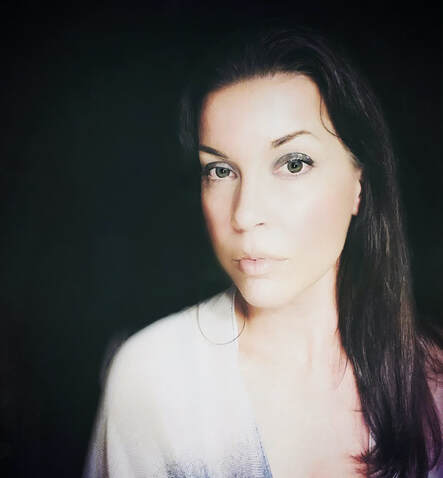

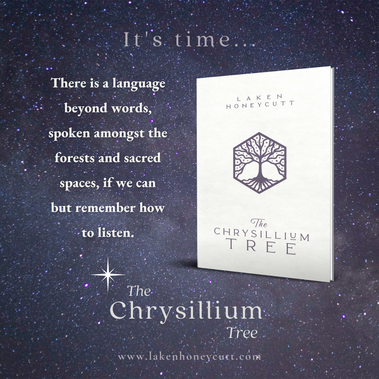
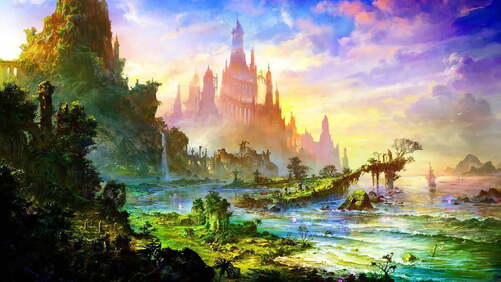
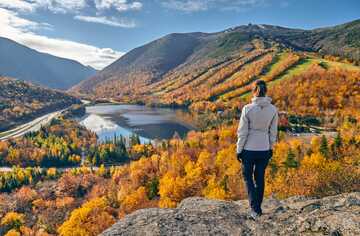
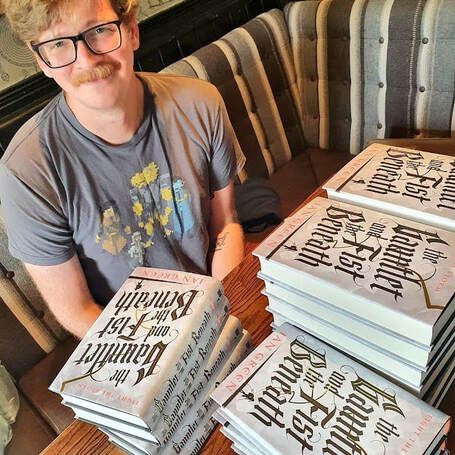
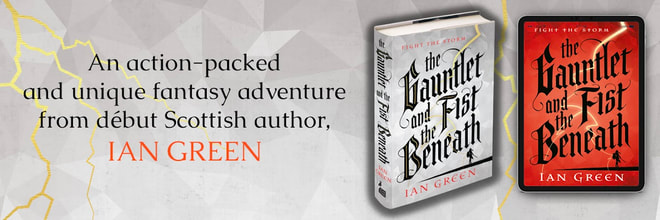
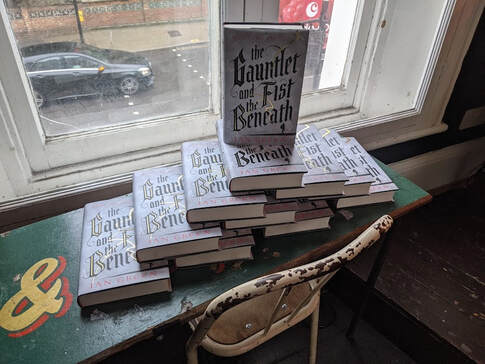
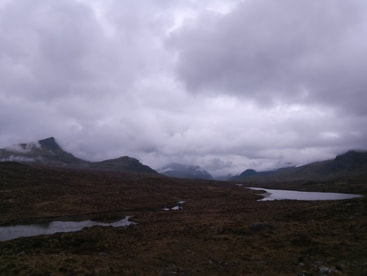
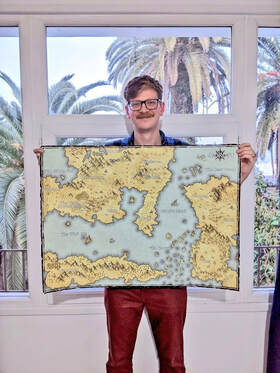
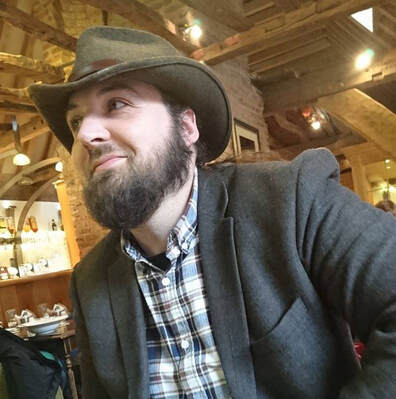

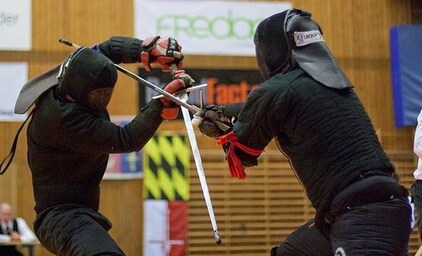
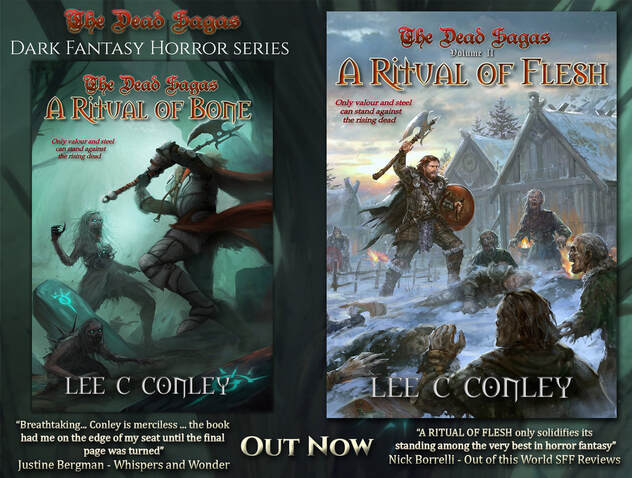
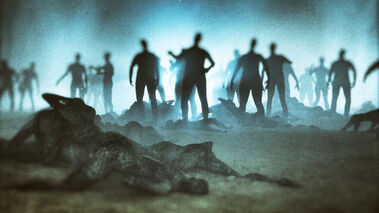
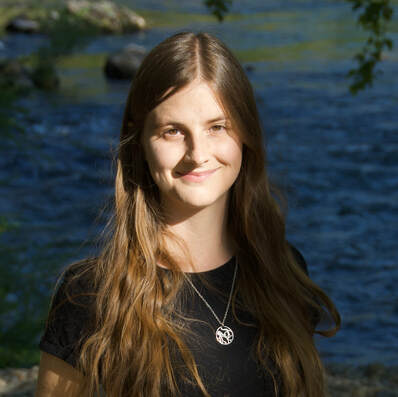

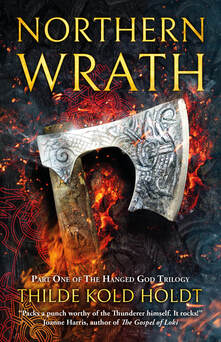
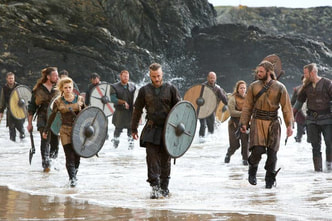

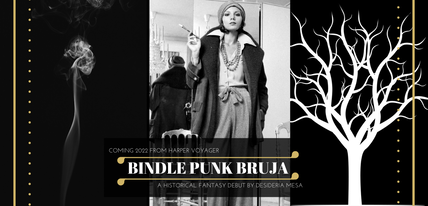
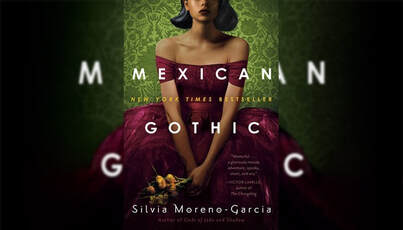
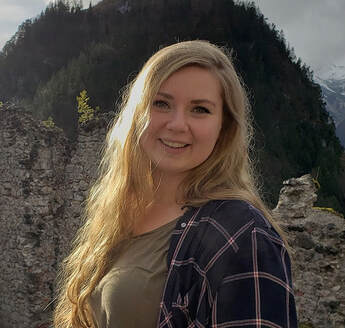

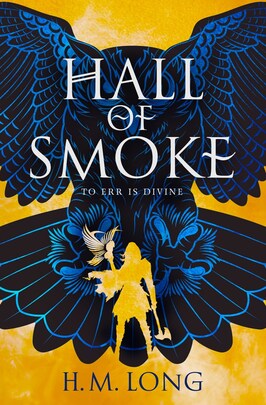
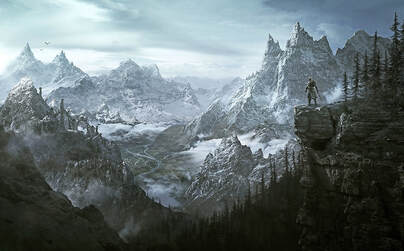

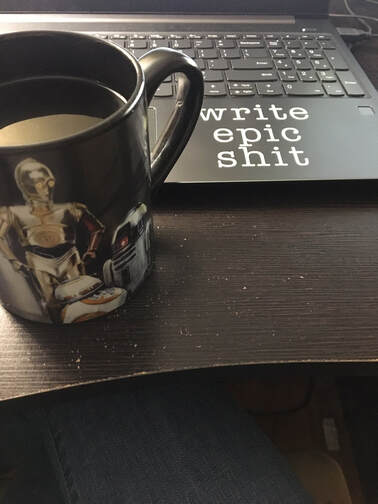
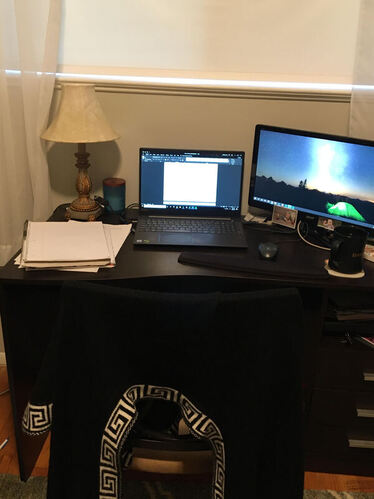
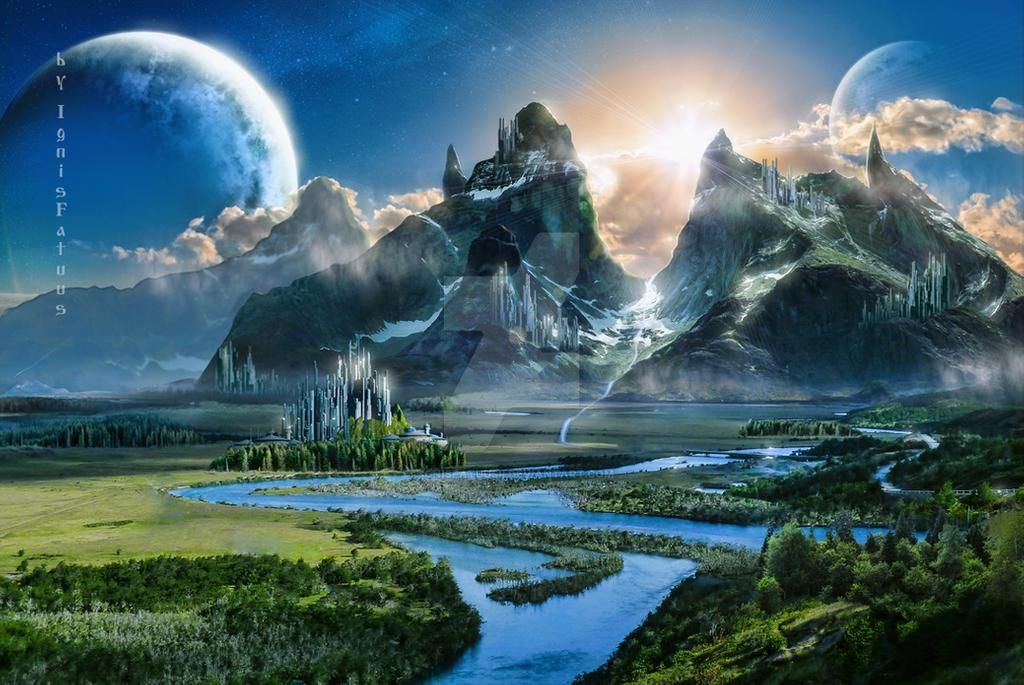
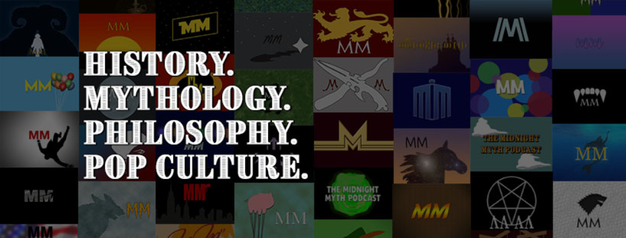
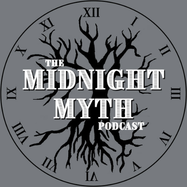
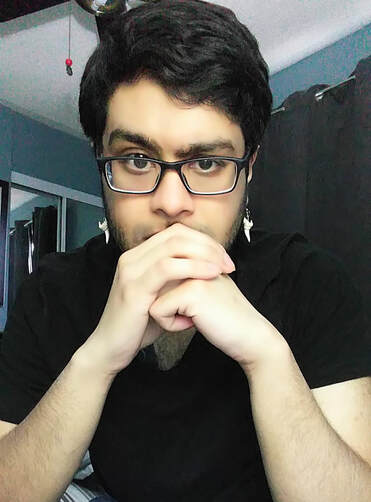

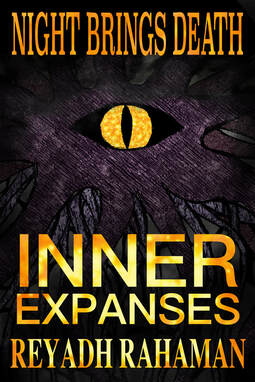




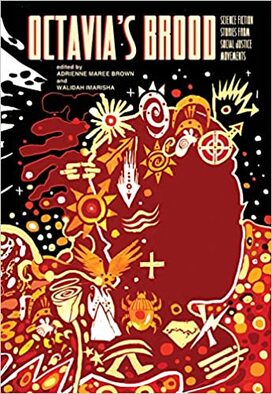
 RSS Feed
RSS Feed
